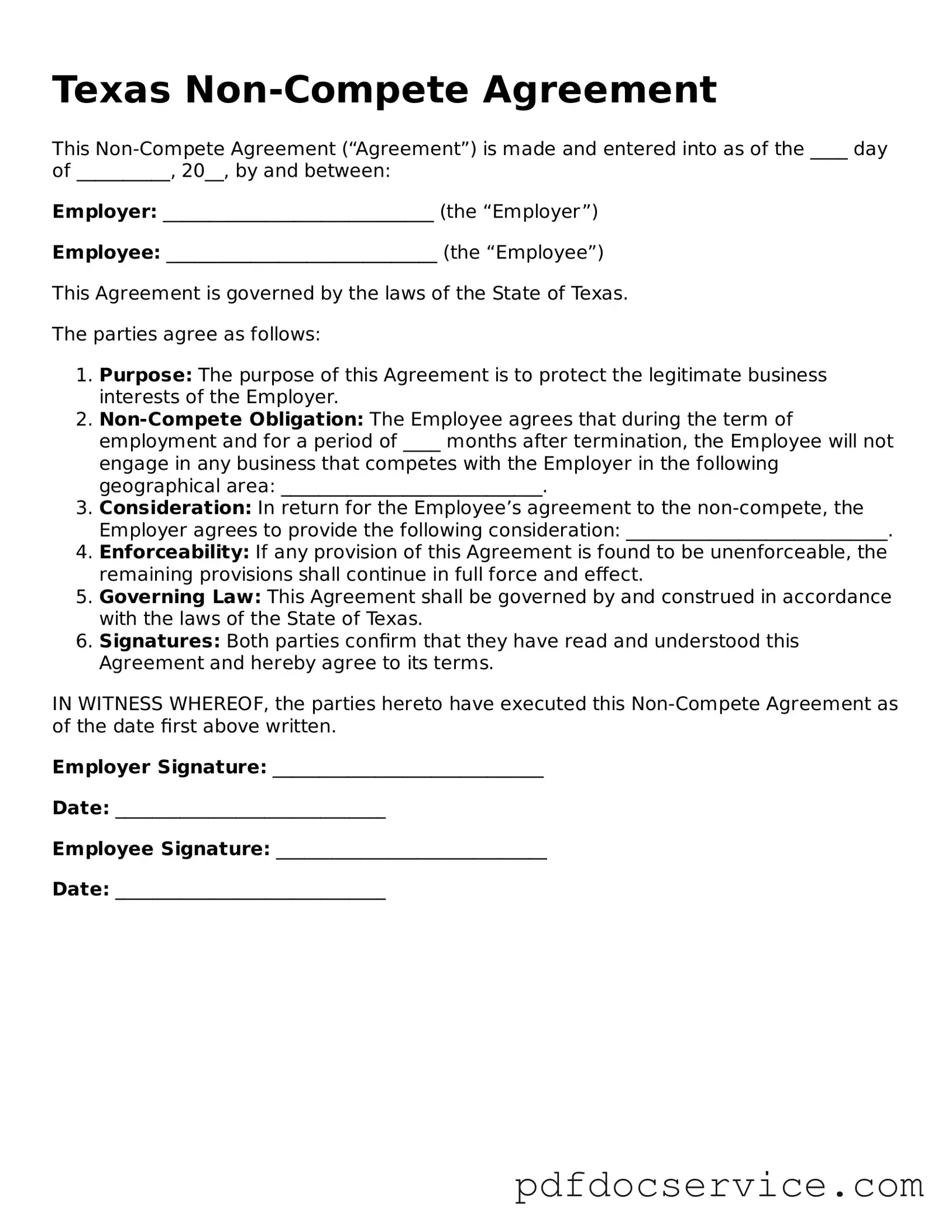What is a Texas Non-compete Agreement?
A Texas Non-compete Agreement is a legal contract between an employer and an employee. It restricts the employee from engaging in certain activities that could compete with the employer's business after leaving the company. Typically, these agreements are designed to protect the employer's trade secrets, customer relationships, and overall business interests.
What are the key elements of a valid Non-compete Agreement in Texas?
For a Non-compete Agreement to be enforceable in Texas, it must meet specific criteria:
-
Reasonable Time Period:
The duration of the restriction should be reasonable, often ranging from six months to two years.
-
Geographic Scope:
The area in which the employee is restricted from working must be defined and reasonable. It should not be overly broad.
-
Consideration:
The agreement must provide something of value to the employee, such as employment, training, or access to confidential information.
-
Protection of Legitimate Business Interests:
The restrictions must protect the employer's legitimate business interests, such as trade secrets or customer relationships.
Are Non-compete Agreements enforceable in Texas?
Yes, Non-compete Agreements can be enforceable in Texas, provided they meet the legal requirements outlined above. However, courts will evaluate the reasonableness of the agreement. If a court finds the terms too restrictive, it may refuse to enforce the agreement or modify it to make it reasonable.
Can an employee negotiate a Non-compete Agreement?
Absolutely. Employees should feel empowered to negotiate the terms of a Non-compete Agreement before signing. Key areas for negotiation may include:
-
Duration of the restriction
-
Geographic limitations
-
Scope of restricted activities
-
Consideration provided by the employer
Negotiating these terms can lead to a more balanced agreement that protects both the employer's interests and the employee's future employment opportunities.
What should an employee do if they believe their Non-compete Agreement is unfair?
If an employee feels that their Non-compete Agreement is overly restrictive or unfair, they should consider taking the following steps:
-
Review the Agreement:
Carefully read the terms to understand the restrictions and their implications.
-
Consult with a Legal Professional:
Seek advice from an attorney who specializes in employment law. They can provide guidance on the enforceability of the agreement and potential options.
-
Consider Negotiation:
If feasible, discuss concerns with the employer to explore possible modifications.
Taking these steps can help employees protect their rights and navigate the complexities of Non-compete Agreements effectively.

